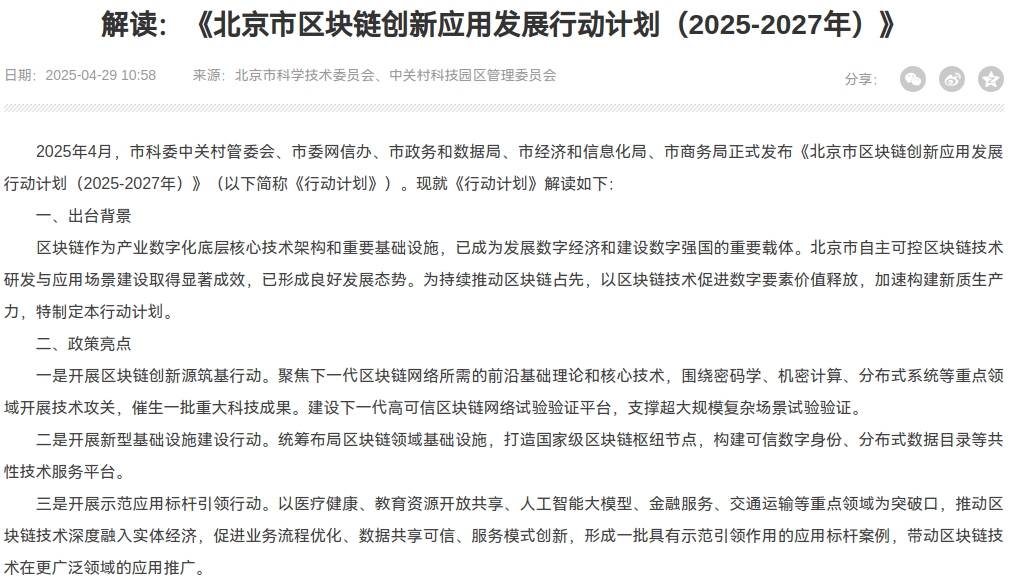
Beijing Embraces Blockchain for Digital Transformation
In a significant move, Beijing has unveiled a comprehensive blockchain development plan spanning the next two years. This initiative, a joint effort by several government agencies, aims to solidify blockchain as a cornerstone of the city’s digital infrastructure and economic growth.
The “Beijing Blockchain Innovation and Application Development Action Plan” positions blockchain as a critical technology for industrial digitalization. The city sees it not just as a tool for efficiency but also as a means to unlock the potential of digital assets, potentially hinting at a future role for crypto mining.

From Research to Widespread Adoption
Beijing boasts a strong foundation in blockchain research, having already made significant strides in developing autonomous blockchain technology and real-world applications. The new plan builds upon this foundation, focusing on developing advanced blockchain software and infrastructure.
- Software Development: The plan aims for breakthroughs in cryptography, confidential computing, and distributed systems. This indicates a focus on developing blockchain solutions that are secure, privacy-focused, and scalable.
- Infrastructure Development: Beijing intends to build national blockchain hub nodes and platforms for trusted digital identity and distributed data directories. These infrastructure components will be crucial for enabling large-scale blockchain adoption.
Targeted Industries for Blockchain Integration
The plan specifically targets several key industries for blockchain application:
- Healthcare
- Education
- Large Artificial Intelligence Models
- Financial Services
- Transportation
The city envisions using blockchain to improve efficiency, enhance data security, and create innovative service models within these sectors.
A Vision for a “One Blockchain, One Network, One Platform” Future
The plan emphasizes the principle of “one blockchain, one network, one platform.” By 2027, Beijing aims to achieve:
- Dedicated Blockchain Chips: This suggests a commitment to developing specialized hardware for blockchain processing.
- Privacy Protection Features: Ensuring the security and privacy of data is a key priority.
- Crosschain Interoperability: Enabling different blockchain networks to communicate and exchange information seamlessly is critical for a connected digital economy.
- Distributed Networking: A decentralized network infrastructure is essential for resilience and security.
- Petabyte-Scale Trusted Node Storage: The city plans to significantly scale its blockchain storage capacity.
- Large-Scale Blockchain Interoperability: Facilitating communication and data exchange between different blockchain systems.
- A Hundred-Million-User-Scale Interoperable Trusted Identity System: Developing a secure and reliable digital identity system for a large user base.
The Beijing government is committed to fostering a robust blockchain ecosystem and has already allocated significant resources. This ambitious plan positions Beijing as a leading hub for blockchain innovation, and its success could have far-reaching implications for the future of digital economies worldwide.


